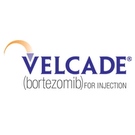Articles in the Headline Category
Headline, News »

The paired use of novel drug agents and autologous stem cell transplantation (ASCT) may not be as effective as formerly believed, according to the June issue of the journal Blood.
Treatment for multiple myeloma commonly integrates high dose therapy of novel drug agents with ASCT. However, an article printed in Blood shows that initial treatment with Revlimid (lenalidomide), one of the novel drug agents, corresponds with inhibition of stem cell mobilization and collection for ASCT.
The introduction of …
Headline, News, Resources »

Kidney failure, the inability of the kidneys to properly expel waste from the body, is a common side effect of multiple myeloma. Approximately 20 percent of all myeloma patients develop progressive kidney failure sometime during the course of their disease.
The signs and symptoms of kidney failure that often occur in myeloma patients include hypercalcemia and excess free light chains in the blood.
Hypercalcemia is a disorder that occurs when a myeloma patient’s affected or damaged bone dissolves and creates …
Headline, News »

Researchers have discovered that variants in XRCC5, a DNA repair gene, are associated with greater blood clot risk during thalidomide (Thalomid) therapy. Although researchers remain unsure of the precise mechanism underlying XRCC5’s contribution to clot formation, they hope that genetic screening could one day identify high-risk patients requiring more intensive preventative intervention.
Blood clots, in particular deep vein thrombosis – which is a clot within the deep veins of the body – can be a serious and potentially fatal …
Headline, News »

Autologous hematopoietic stem cell transplants (auto-HSCT) may reverse kidney failure in one third of multiple myeloma patients, according to authors of an article published in the journal Biology of Blood and Marrow Transplantation.
Stem cell transplants are used to replace stem cells that are killed along with myeloma cells during chemotherapy. Transplantation of stem cells collected from the patient’s bone marrow before chemotherapy is known as an autologous transplant.
About 20 percent of patients diagnosed with multiple myeloma also suffer …
Headline, News »

In England and Wales, the National Institute for Health and Clinical Excellence (NICE) has finalized guidelines for the use of Revlimid (lenalidomide) in combination with dexamethasone (Decadron). The guidelines recommend the use of Revlimid for myeloma patients who have already received two or more prior therapies.
NICE is an independent organization that provides medical opinions to the National Health Service (NHS), the government-funded health care system in the U.K.
Based on NICE’s recommendation, the NHS will only pay …
Headline, News »

The Canada Border Services Agency has begun a concentrated effort to stop the smuggling of thalidomide (Thalomid) into Canada. Also, Health Canada is halting all orders and shipments of unlicensed versions of thalidomide as well as the licensed brands from Mexico and other developing countries. These measures were taken after recent news articles focused on myeloma patients smuggling low-priced thalidomide into Canada.
Despite these actions, the issue of how patients who cannot afford thalidomide are to obtain the …
Headline, News »

The European Journal of Haematology has announced that researchers have found a Velcade (bortezomib) and dexamethasone (Decadron) combination is highly effective in relapsed and refractory multiple myeloma patients. The study authors caution, however, that the treatment responses appear relatively short-lived.
In the present study, 70 relapsed or refractory myeloma patients–that is, patients whose disease has not responded to previous therapies–received either Velcade alone or a Velcade-dexamethasone combination. The treatments were not equally divided, however, and 87 percent of …

